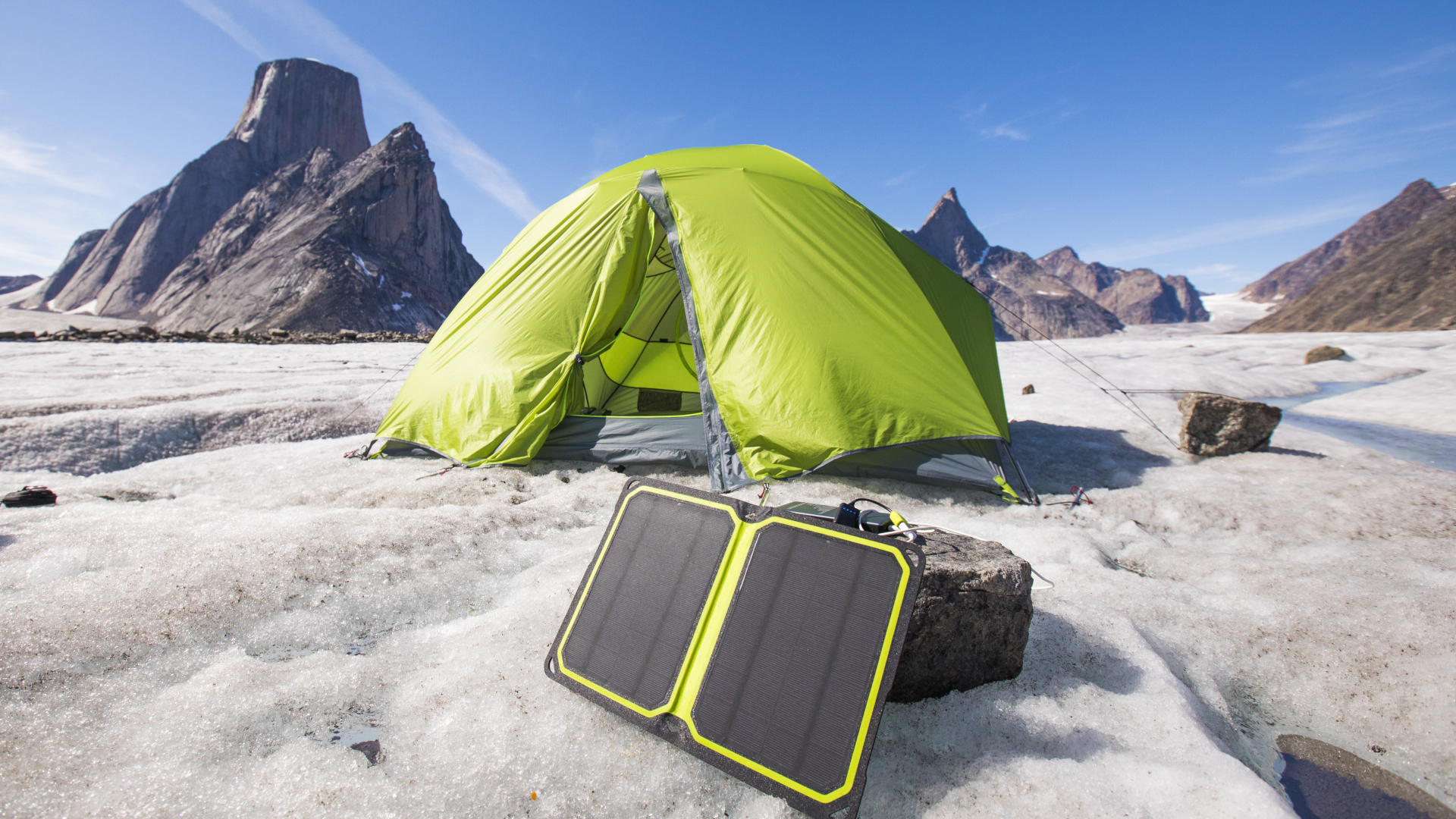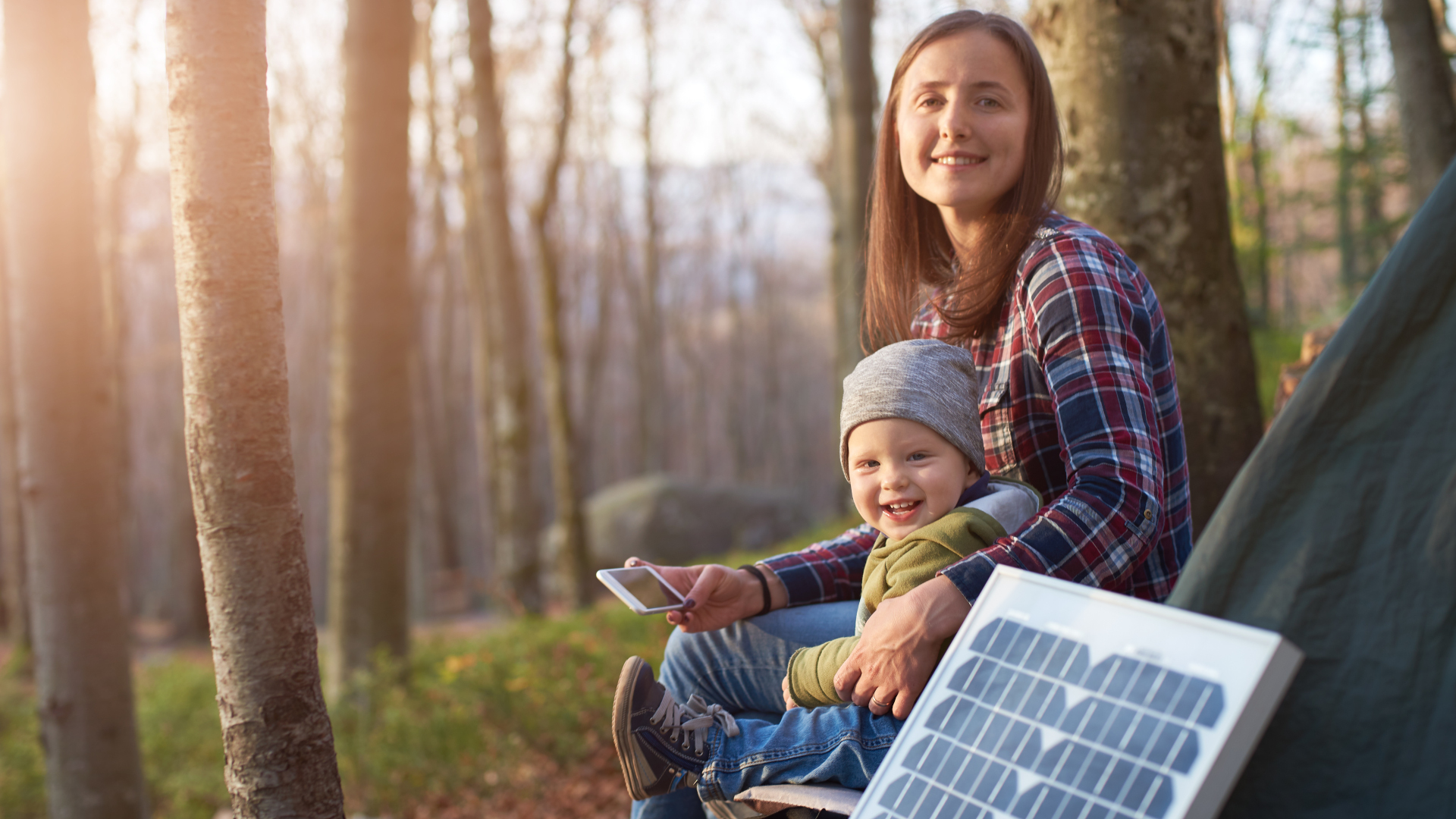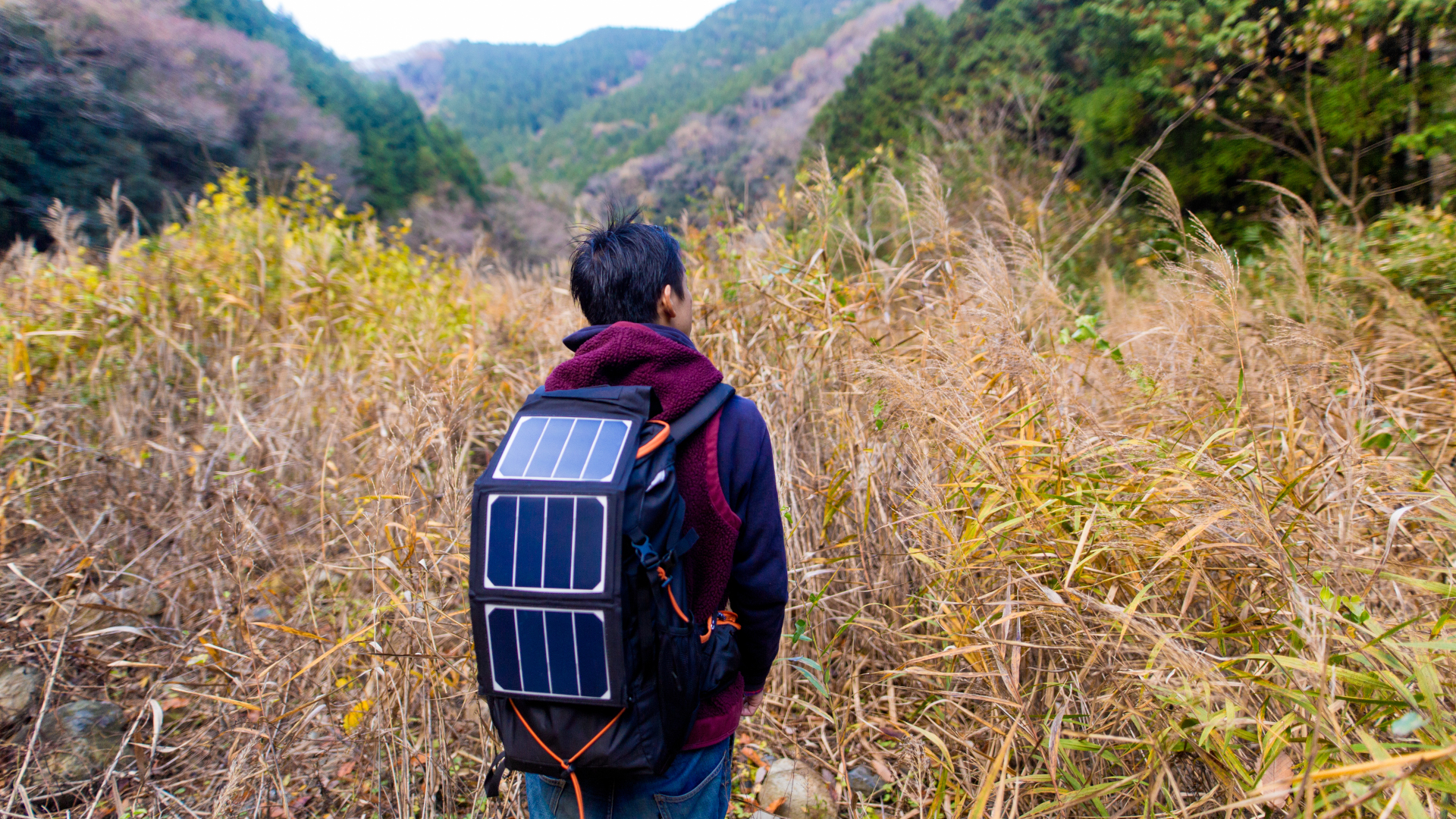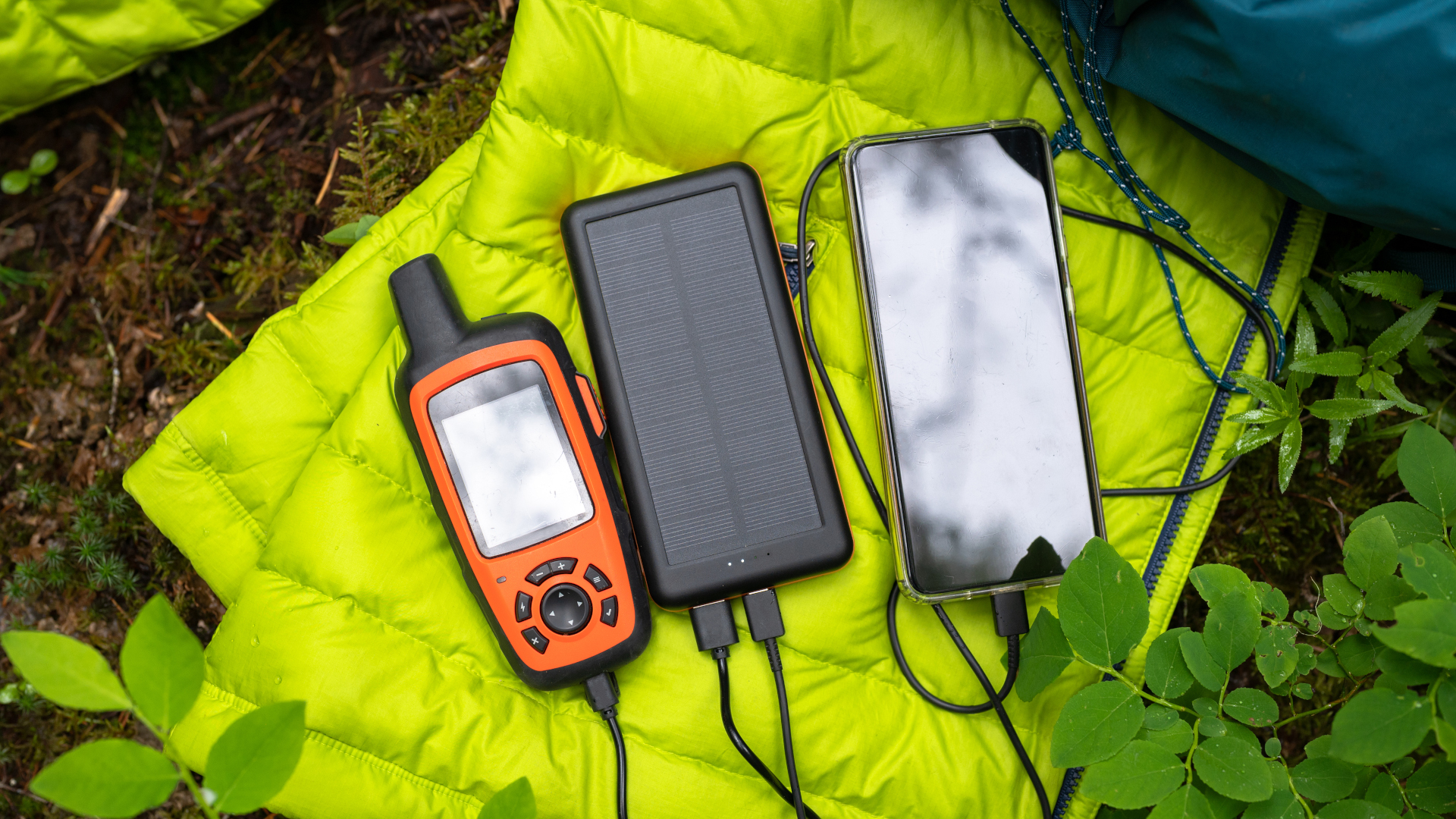Do you need portable solar panels for camping?
Do you need portable solar panels for camping, or does it just add more bulk to your backpack? We examine the pros and cons of these chargers for camping with tech

All the latest inspiration, tips and guides to help you plan your next Advnture!
You are now subscribed
Your newsletter sign-up was successful
Our increasing reliance on technology is a bit of a double edged sword, isn’t it? On the one hand, spending time on screens is definitely bad for your eyes if not for mental health, and escaping into the woods tech-free for a few days of green exercise seems like a great remedy. But on the other hand, advances in technology mean you can get out into the wild and still enjoy access to GPS, make a tasty cup of coffee to start your day and enjoy ample lighting at night even if there’s a fire ban. That all might sound pretty good to you, but of course, the more technology you bring camping, the more need there is for a sustainable way to keep all those devices charged. So, do you need portable solar panels for camping? We took a look at this increasingly popular (and increasingly more affordable) piece of camping tech to help you decide if it’s worth it for you.

What are portable solar panels for camping?
If you’ve been camping or on a thru-hike lately, you may have seen folks with their phones plugged into small, folding panels that look a little bit like a tablet from a distance. Portable solar chargers are just like the solar panels you might put on your roof at home to make your house more sustainable, but smaller and usually encased in a protective plastic or mesh sheet or case. Some smaller panels come in a single sheet of cells while larger ones may have two or three sheets that fold up into a slim package. While some so-called portable solar panels for camping are larger and meant to be placed on the roof of your van or car, true portable solar panels for camping can easily slide inside your backpack for long hikes.
Portable solar panels will have various jacks to provide power to different devices, such as a USB to charge your phone, GPS watch, best headlamp and camera and even a DC socket for charging camping coffee makers, camping lanterns and even electric camping coolers.
Portable solar panels usually run off a lithium battery which you can charge at home on the mains, then when you’re out in the wild, you can leave it out in the sunlight next to your tent to keep it juiced up for when your devices start to run low. Some portable solar panels are even designed to be attached to your hiking backpack so they can soak up the sun while you walk.

Do you need portable solar panels for camping?
Though it might seem like a bit of a luxury if you’re just on an overnight camping or backpacking trip, there are obviously some great advantages if you like traveling with tech. First off, you’re getting a source of clean energy. Setting aside the environmental implications of manufacturing these panels and their batteries, once you own one, you don’t need to plug into the mains so there’s no impact on the environment, and it saves you money too. The initial investment could be under $50 these days and after that, there’s no running your car or paying for a cup of coffee just to use the outlet at a cafe or truck stop on your travels.
Portable solar panels are also silent, so if you’re going car camping, you can avoid the annoying hum of generators, which other campers and the local wildlife will thank you for.
Further, portable solar panels that are actually made for camping and backpacking are small and lightweight, adding little to your pack. We’ve seen portable solar chargers that weigh as little as 1lb and fold up to 6”x10”, sliding into the pocket of your backpack like a tablet or e-reader. If you’re ultralight backpacking, even that extra pound might cause you to think twice, but again, not if you want to have access to your GPS watch or are a photographer, while for car camping, these panels can make a lot of sense.
All the latest inspiration, tips and guides to help you plan your next Advnture!

All of that said, there are some downsides to portable solar panels for camping. First, as is always the case, these panels do require actual access to sunlight. Live in Colorado? No problem. But if you’re in the UK, you could go weeks on the trail without seeing the sun, which means your solar panel won’t do you any good at all. Further, some of these panels have built in batteries, which get hot when left out in the sun, and that can be dangerous.
Finally, the slimmer, lighter and cheaper you go, the lower the capacity of your solar panel may be. It might only be good for a couple of charges on your phone before it needs to see the sun, which may be no issue, but if you’re thinking about setting up for some long term off-grid living, you’ll need a bigger, and heavier, solar panel.
So, do you need portable solar panels for camping? Basically, if you want to camp in a sunny place with lots of tech for more than a night, it’s a good sustainable option. If you just want to keep your phone charged for a couple of days, you might be able to just set off with it fully charged and keep it on airplane mode most of the time to save battery, or invest in a smaller, lighter and cheaper portable phone charger. Ultimately, because you may not have access to direct sunlight, you want to make sure that you’re not totally reliant on a portable solar panel for your survival, but it can definitely add a touch of home comfort to your next camping trip.
Julia Clarke is a staff writer for Advnture.com and the author of the book Restorative Yoga for Beginners. She loves to explore mountains on foot, bike, skis and belay and then recover on the the yoga mat. Julia graduated with a degree in journalism in 2004 and spent eight years working as a radio presenter in Kansas City, Vermont, Boston and New York City before discovering the joys of the Rocky Mountains. She then detoured west to Colorado and enjoyed 11 years teaching yoga in Vail before returning to her hometown of Glasgow, Scotland in 2020 to focus on family and writing.

